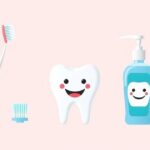Are you aware of the best vitamins to strengthen teeth and gums? Many women over 30 struggle with dental issues that can affect their confidence and overall health. But there’s hope! By incorporating the right vitamins into your routine, you can enhance your oral health and enjoy a radiant smile. This journey can be empowering, and you don’t have to navigate it alone.
Understanding the Role of Vitamins in Oral Health
Oral health is often seen as a reflection of overall health, and vitamins play a crucial role in keeping your teeth and gums strong. Just like your body needs nutrients to function well, your mouth does too. Vitamins are essential for maintaining the structure of your teeth and gums, preventing decay, and fighting infections. They work together to promote healing and strength in your oral cavity. Taking a close look at what vitamins your body needs can radically change your dental health.
Vitamin C: The Essential Nutrient for Healthy Gums
Vitamin C is often dubbed the superstar of vitamins when it comes to oral health. This powerful antioxidant does magic for your gums! It helps your body produce collagen, which is essential for gum tissue health. Without enough Vitamin C, your gums can become inflamed, leading to gingivitis and other gum diseases.
- Boosts collagen production for healthy gums.
- Helps fight harmful bacteria in the mouth.
- Reduces inflammation, promoting healthier tissues.
Women over 30 may experience changes in oral health, making it even more vital to ensure you’re getting enough Vitamin C. Incorporating citrus fruits, strawberries, and bell peppers into your diet can help you achieve just that!
The Importance of Vitamin D for Teeth Strength
Vitamin D isn’t just about strong bones—it’s essential for your teeth too! This vitamin helps your body absorb calcium effectively, which is vital for strong teeth and bones. Without enough Vitamin D, you might find yourself facing issues like tooth decay and even periodontal diseases.
- Regulates calcium absorption.
- Supports bone structure and helps prevent tooth loss.
- Reduces risk of developing gum disease.
Consider getting some sunlight or including foods like fatty fish and fortified products in your diet to enhance your Vitamin D levels. This is especially important during those gloomy months when sunshine is scarce.
Calcium: Building Blocks for Strong Teeth
Calcium is often associated with dairy, but it’s essential for more than just strong bones—it’s the building block for your teeth! Adequate calcium intake can prevent tooth decay and keep your enamel strong.
- Strengthens teeth and bones.
- Prevents tooth decay and weak enamel.
- Supports overall oral health by preventing gum disease.
Women, especially those who might have dietary restrictions, should be vigilant about their calcium intake. You can explore alternatives like leafy greens, almonds, and fortified non-dairy milks. Finding the right sources can ease concerns about maintaining strong, healthy teeth.
Vitamin K2: A Lesser-Known Hero for Your Smile
Vitamin K2 might not pop up in everyday conversations, but it’s a hero when it comes to oral health. It helps direct calcium to your bones and teeth, ensuring that they get the minerals they need to stay strong.
- Helps prevent tooth decay by improving calcium metabolism.
- Plays a role in the development of strong enamel.
- Supports gum health and may reduce the risk of cavities.
Found in foods such as natto, hard cheeses, and egg yolks, consuming Vitamin K2 can provide your smile with the protection it deserves.
B Vitamins: Supporting Overall Oral Well-Being
B vitamins, including B1, B2, B3, B12, and others, contribute greatly to oral health. They help maintain healthy gums and tissues, and their deficiency can result in issues like mouth sores and oral infections.
- Supports the body’s healing process.
- Contributes to the maintenance of healthy gums.
- Helps in the production of red blood cells.
Including whole grains, meats, eggs, and green leafy vegetables can boost your B vitamin intake. For women experiencing fatigue or anxiety, B vitamins can also offer additional support and energy.
How to Use Supplements Effectively
While getting vitamins from food is ideal, supplements are an excellent way to fill in the gaps, especially when dietary restrictions come into play. It’s essential to consult with a healthcare professional before starting any new supplement regime.
- Choose a high-quality supplement brand.
- Follow the recommended dosages accurately.
- Combine supplementation with a balanced diet for best results.
Taking the right supplements can help ensure you get all the nutrients you need, but remember, they should complement a great oral health regimen.
Natural Food Sources of Essential Vitamins
Here’s a quick list of natural foods rich in the essential vitamins mentioned:
- Vitamin C: Oranges, strawberries, kiwis, bell peppers.
- Vitamin D: Salmon, fortified cereals, cheese, egg yolks.
- Calcium: Yogurt, cheese, almonds, broccoli.
- Vitamin K2: Natto, hard cheese, chicken, egg yolks.
- B Vitamins: Whole grains, meats, dark leafy greens.
Creating a diverse and colorful plate can not only boost your vitamins but also make meals enjoyable. Cooking healthy meals can transform your kitchen into a sanctuary of wellness.
Tips for Maintaining a Healthy Oral Care Routine
Along with adequate vitamins, having a robust dental care routine is essential. Here are some tried-and-true tips for maintaining healthy teeth and gums:
- Brush your teeth twice a day with fluoride toothpaste.
- Floss daily to remove plaque between teeth.
- Visit your dentist regularly for check-ups.
- Limit sugary snacks and drinks that can lead to decay.
- Stay hydrated—water helps wash away food particles.
A consistent routine combined with the right nutrition sets the stage for a healthier smile. Remember, small habits can lead to BIG results!
Inspiring Stories: Women Who Transformed Their Oral Health
Many women find themselves battling common oral health challenges, but there is hope. Take Sarah, for instance. At 35, she struggled with receding gums and frequent cavities. Feeling overwhelmed, she started focusing on her vitamin intake and made adjustments to her dental care routine. After a few months, Sarah noticed significant improvements. Her gums became healthier, and she felt more confident sharing her smile.
Another inspirational story is that of Helen, who overcame chronic mouth sores by ensuring she received enough B vitamins. With a little perseverance and determination, she turned her oral health around, empowering her to tackle life head-on.
These stories show it’s possible to transform your oral health with the right approach. You, too, can embrace this journey of wellness.






